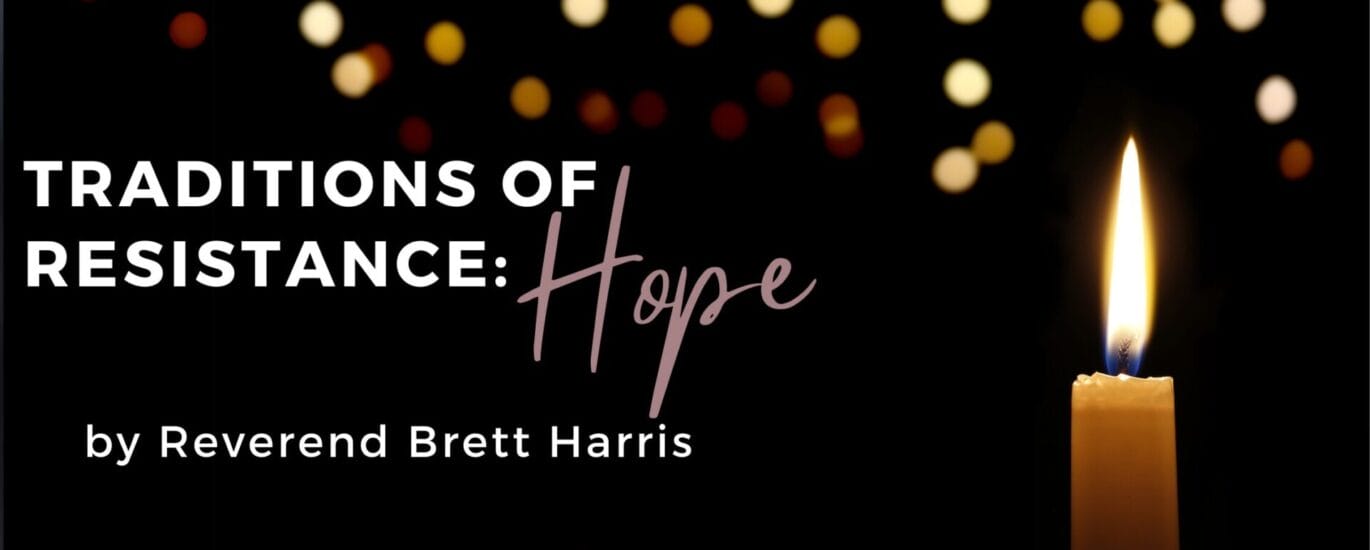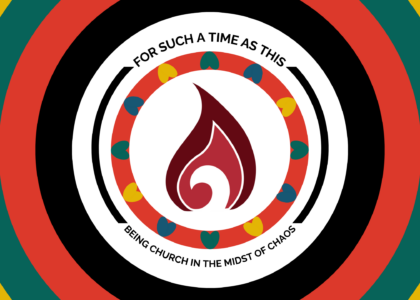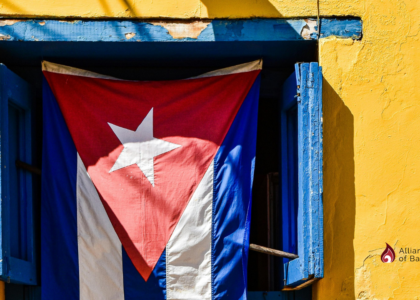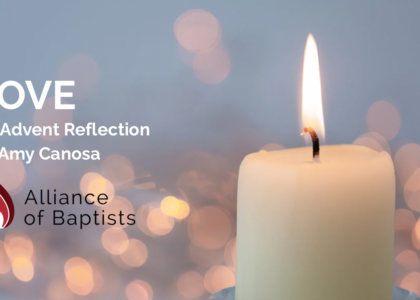By Reverend Brett Harris
Hope.
Sixteen years ago that word, along with a portrait of then candidate Barack Obama, was emblazoned on posters and yard signs throughout my neighborhood in Decatur, Georgia. I proudly displayed one from the window of my bedroom, the only time in my life I’ve ever publicly expressed support for a political candidate for any office.
I had also just recently walked back into a Baptist church, Oakhurst Baptist that is, for the first time after vowing ten years earlier never to darken one’s door again after a particularly hostile experience in high school to find a community of Christians unlike any I’d ever known in all the right ways who offered me a new way of understanding what it meant to be Baptist.
I, like many others that year, was filled with hope.
Hope that we would pull ourselves out of already intractable wars.
Hope that we would break the embargo keeping us from free engagement with our neighbors and friends in Cuba.
Hope that we would find a way to move past the ludicrous and limiting idea that only straight, white men could lead our nation.
For many years, through and beyond Obama’s presidency, that iconic image was also found on a magnet on the refrigerators in the various homes in which my family has lived since leaving Georgia and returning to Mississippi, often finding itself near our Alliance of Baptists magnet and copies of Oakhurst Baptist Church’s covenant and University Baptist Church’s (MS) values —a makeshift altar of places and people that had shaped my family’s life and fueled our hope for a better and brighter world.
A great number of events, both personal and political, have challenged that hope in the last decade that could easily pave the way to cynicism and apathy: moves away from friends and community and the death of my mother-in-law far too young not to mention the reawakening of Christian nationalism and now twice electing a president who wants nothing more than to roll back so many of the freedoms and opportunities that were the source of so much of our collective hope.
Hope can feel hard to find these days, harder still if we look for it in the wrong places.
When we concede our hope to anyone or anywhere other than God’s creative imagination, hope becomes a fleeting feeling, but when we place our hope in the possibilities that only God can imagine with and through us and all of creation, our hope becomes a firm foundation.
The compelling factor in that image from the 2008 election, in some ways, is also one that can contribute to our waning hope. Looking at that image in recent years has often filled me with nostalgia for the recent past, and I have had to remind myself that nostalgia is an enemy of hope. While that image calls out to a desire for a different future, it also confuses where, and to whom, we must look and search for our hope.
In what I would argue is his most powerful book, God on Earth: The Lord’s Prayer for Our Time, Will Campbell describes this succinctly as he reflects on the phrase, “Thy kingdom come.”
“We wish. We also hope,” he writes, “Our wish is for the things we desire. Our hope is in the Lord. Who made heaven. And also earth. The prayer Jesus taught us is that the kingdom is for us. Thy kingdom come.”
When we concede our hope to anyone or anywhere other than God’s creative imagination, hope becomes a fleeting feeling, but when we place our hope in the possibilities that only God can imagine with and through us and all of creation, our hope becomes a firm foundation.
We need that hope today. We need that hope in this season as we await the arrival of our Messiah. And we need that hope for the work ahead. As Elijah recently reminded us, “ We can’t stop now. For the stakes are too high. We must continue to see the type of country we live in so that we know the type of faith we will need and the type of hope we must become.”
Through moves, renovations, and the finite amount of space on the side of a counter-depth refrigerator, the arrangement of all the items has shifted over the years. The covenants and values from the congregations that have shaped us remain, but more space has been made for my sons’ artwork, acknowledgements from their teachers of their compassion, playbills for the shows they’ve acted in over the last year, and newspaper clippings of a tired old school bus my wife repurposed into a mobile children’s museum to serve our rural communities here in south Mississippi.
It’s still a makeshift altar to what fuels our hope and a collage of what’s possible when we lean into that divine, creative imagination God shares with us to work with others to make the world better and brighter. Together.
And maybe because it’s now filled with so much from my sons’ lives, it’s also a reminder for me of the words a United Methodist pastor in Winston-Salem, North Carolina used to share with the congregation every time a child was baptized. “Every time a baby is born,” he would say as he carried the child through the sanctuary, “it is proof that God is not finished with us. There’s still more to come.”
In spite of all that makes it hard to see, we still have hope.
Our hope is in the Lord, and our hope is on the way.

Brett Harris (he/him) is the development and visual communications manager for the Alliance of Baptists. He is an ordained pastor and creator of the podcast God Knows Where, a search for God beyond the beaten paths of our tradition. From 2018-2022, he served Alliance partner congregation University Baptist Church in Hattiesburg, MS. He’s also worked in K12 and Higher Education in Mississippi. A graduate of Wake Forest University (BA) and the Candler School of Theology at Emory University (MDiv), Brett lives in Laurel, MS, with his wife, Biz, and their two sons.





Recent Comments